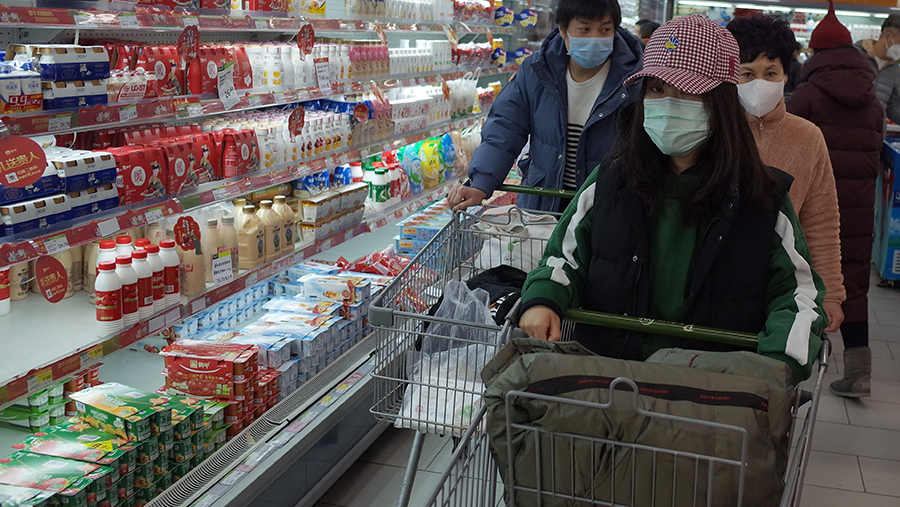Global dairy prices are coming under pressure from coronavirus, now known as Covid-19, which is affecting almost all commodity markets.
Apart from the immediate practical supply chain logistics, the uncertainty as to its impact on Chinese demand for dairy commodities looms large over markets, says Peter Meehan, senior commodity analyst at global broker INTL FCStone.
The market nerves come at a time when UK farmgate prices for February and March have been largely stable.
“A significant proportion of the potential price negativity caused by Covid-19 has been offset for the moment by the on-going dryness concerns over New Zealand’s North Island, which has led to a sharp fall-off in its pasture growth rates,” said Mr Meehan.
Further pressure to come
“Now that we have moved well beyond New Zealand’s peak milk-producing months and collections tail off as per their seasonal trend, there’s a sense that the impact of Covid-19 will begin to win that recent tug-of-war, putting further pressure on dairy prices in the coming weeks.”
See also: Which rules are relaxed when farmland is floodedAdvertisement
Chinese port capacity is severely curtailed by reduced staffing, with a backlog of vessels waiting to unload. The transport of medical supplies is being prioritised.
A fall in numbers dining in restaurants and fast-food outlets has also led to a fall in demand for dairy ingredients, in turn further affecting dairy commodity consumption.
GDT down 7.4% in February
“The effects of this have been reflected in the latest Global Dairy Trade (GDT) auctions which, after posting back-to-back gains at the start of 2020 (+4.5%), have declined by 7.4% over the February auctions.”
Explore moreKnow How
Visit our Know How centre for practical farming advice
Had it not been for such dryness in New Zealand, this fall could have been far more severe, said Mr Meehan.
New Zealand’s NZX dairy futures markets have seen whole milk powder’s March 2020 to October 2020 futures contracts fall 8.9% over the past four weeks. NZX skimmed milk powder futures were down 6.3% over the same period and NZX butter fell 2.7%.
European dairy prices have also fallen in recent weeks, although in most cases to a lesser degree.
Covid-19 is significantly disrupting supply chains, says the AHDB, with restrictions on movements into and out of infected areas and workers staying at home to avoid contracting the disease.
Slowing Chinese farm production
Farmers are having to slow production to deal with transportation issues, particularly in getting feed in as well as product out. Labour shortages are also an issue.
Millions of chickens have had to be slaughtered because of lack of feed availability.
“All industries are being impacted by supply chain logistics, although this is a bigger challenge for the more perishable products such as raw milk,” reported Chris Gooderham, head of market specialists, AHDB Dairy & Livestock.
“Pork and dairy consumption are also being impacted by the closure of restaurants, although retail sales are only reported as showing marginal reductions.
“For the UK, trade with China is still small compared with domestic and EU sales. It is more likely that the EU and UK will see a knock-on effect from New Zealand being unable to ship product into China, and looking for other outlets instead.”

